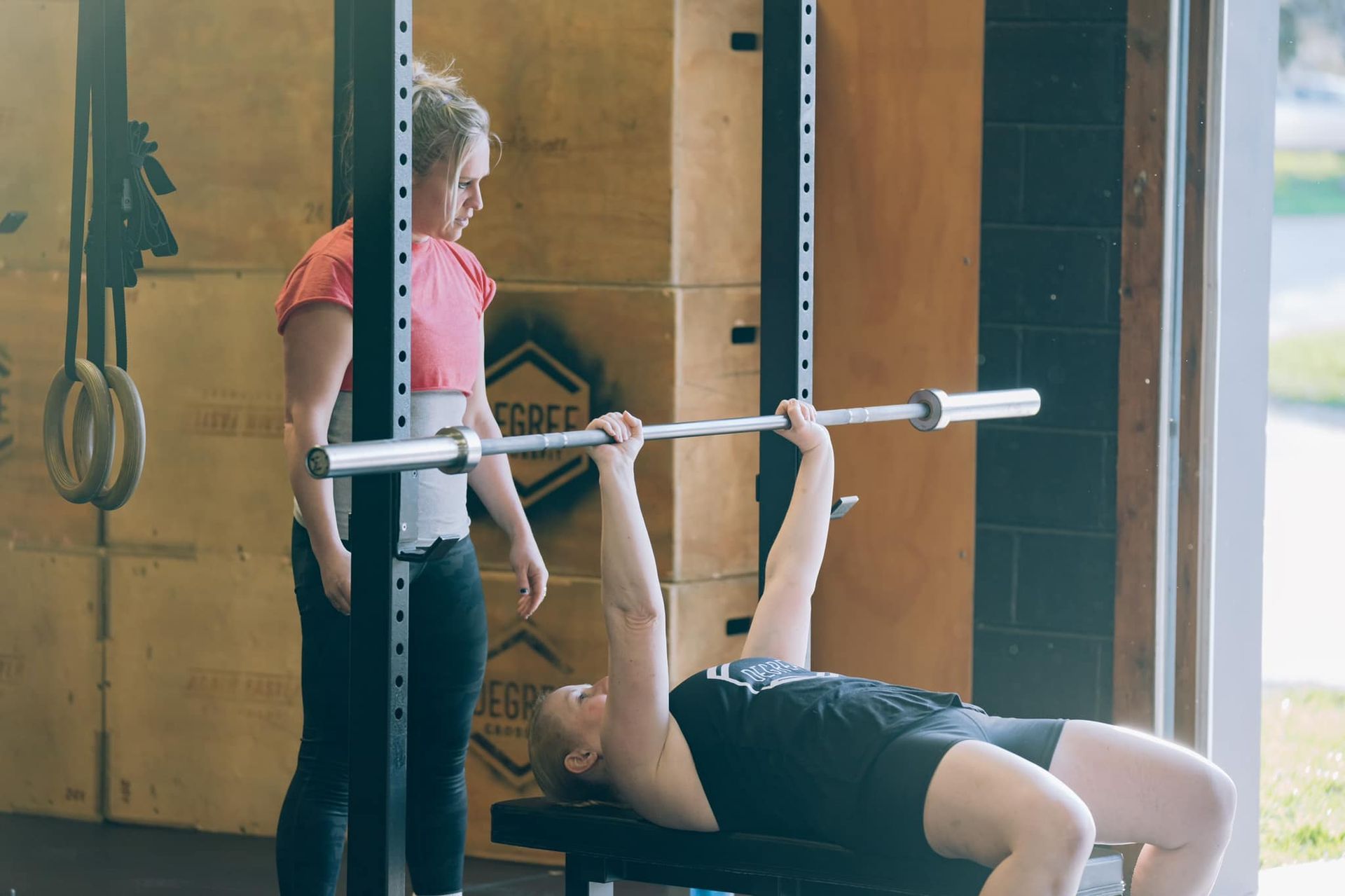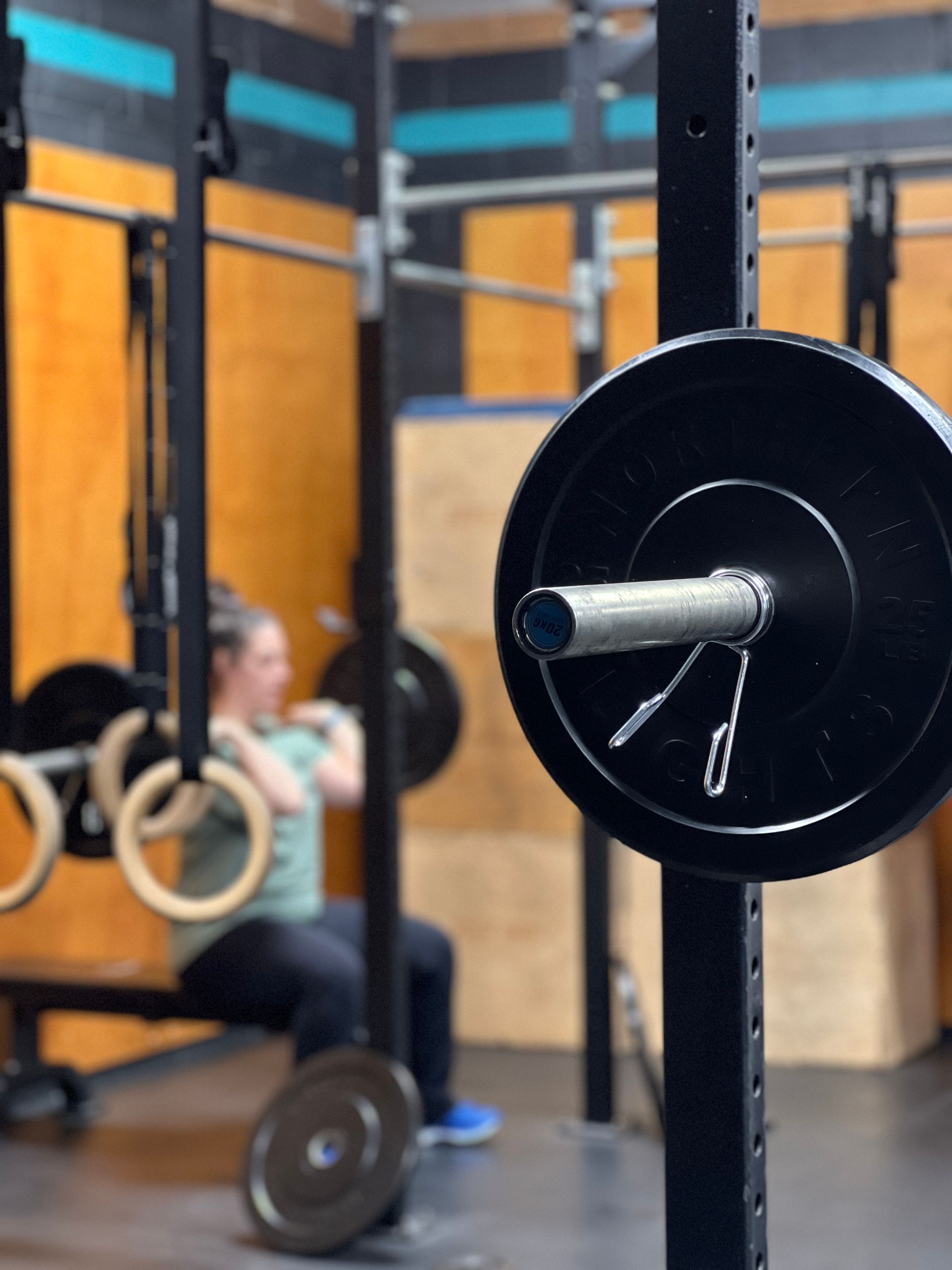How much sugar is too much?
November 8, 2020
Written By: Coach Mairead
Sugar is a hot topic when you talk about nutrition! Since we're coming up to Halloween and then Christmas after that, we get worried about how much sugar we should really be having.
Today, let's break down some of those worries so you can enjoy your food without stressing.
Where do we find sugar?
We have both natural and added sugar in our diets. Natural sugars are found in fruit, some starchy vegetables, dairy products, and some grain products. We generally don't have to worry about natural sugars - these foods bring so much nutrition to the table in the form of fiber, vitamins and minerals. Sugars that we might want to watch are added sugars and those in foods that don't give us a ton of nutritional value. This includes sugar added to other foods to make it sweeter, like in cereal, as well as sweet treats and sugary drinks.
Can sugar be part of a healthy diet?
Absolutely! Life without our favourite sweet treats wouldn't be the same. In a well-balanced diet, you'd be eating lots of fruits and vegetables, lean proteins and high fibre carbs. Having a bit of sugar in there is not going to totally destroy your health and derail your goals. If we're often having a lot of sugar at meals and snacks, without having a well-balanced diet, we might find that our energy levels are up and down throughout the day, and we might be missing out on key nutrients from other foods.
How do I know how much sugar is in something?
Reading labels to see how much sugar you're getting is hard in Canada. We list sugar as the amount of TOTAL sugar in that food, not just the amount added. For example, the total sugar in a sweetened yogurt would include the added sugar, as well as the natural sugar in dairy. A comparable unsweetened yogurt would still have some amount of sugar on that label from the natural sugar in dairy. Some new labels will have a percentage beside the sugar amount - this percentage is based on eating 100g of TOTAL sugars, including those from whole foods. This is a general recommendation for the population, and may not make sense for your specific needs or the way you eat.
Why do I feel out of control around sugar?
The people who feel out of control around sugar are generally those who are restricting how much they have, or not giving themselves permission to eat all foods in satisfying amounts. The more you restrict something, especially sugar, the more deprived your brain feels and the more you'll want it.
Moving past this takes time and practice - it won't happen overnight. People with a great relationship with food will be able to enjoy satisfying amounts of their favourite treats when they want them without feeling out of control.
The take-away message for most people:
You can include treats and sugars in a health diet. Try to prioritize the basics of healthy eating, instead of focusing on what to cut out. All the recommendations out there are designed to meet the needs of most people and might not make sense for your specific health status and needs - meeting with a Registered Dietitian can help with that!
More nutrition questions? Email mairead@degreefitnessseaforth.com
to get answers, or to book your Nutrition Consultation to go over your specific needs!

Written By: Mairead, Registered Dietitian As a Dietitian, I work with a lot of different people. One common thread is that we talk about excuses. So many people come in to a nutrition consultation and tell me about their challenges with nutrition and fitness, and then follow it up by saying something along the lines of "I know these are just excuses, I can do better". The things we often consider excuses can include having a busy job and a busy family life. Working weird hours. Struggling with the cost of groceries. Caring for loved ones. Managing health concerns, chronic diseases, or injuries. The list goes on. For my nutrition clients, I rarely consider any of these things to be excuses. It's not an excuse that you can't eat well because you work long hours and then take your kids to their sports practices - these are very real reasons why you're struggling to make healthy choices. It's not an excuse if you work nights and need to get some sleep so you didn't make it to the gym - it's as aspect of your life that makes getting enough exercise challenging. Think about the things you might consider to be your excuses for not "doing better" with your health and fitness. Are they really just parts of your life or the season you're currently in? None of these things should be making you feel bad or like you're making excuses. But on the flip side, these reasons also don't mean we need to throw in the towel on our goals entirely. They mean we might need to get a bit creative, decide what's really important to us right now, and ask for help when we need it! Instead of feeling bad about your "excuses" that aren't really excuses, it might be time to find some new ideas. Working with a Dietitian can be a great way to figure out what's actually important in your health and fitness goals, and come up with some new ideas to get you there. There are always steps we can take in the right direction to move past those "excuses" and work together for a happier and healthier you! Looking for more personalized nutrition advice? Let's chat! Email mairead@degreefitnessseaforth.com for more information about our Nutrition Programs, or click HERE to book your FREE Bite-Sized Nutrition Chat!

Written By: Coach Kelly Have you heard... "You’re too old, you’re too tired, you’re too X Y Z" to workout? WRONG! Did you know that the more you move, the less likely you are to experience injuries? The less likely you are to trip, slip or fall. If these things happen, you are less likely to be severely injured. We’ve worked with many different people over the almost 10 years that Degree has been around; hip replacements, knee replacements, strokes, members that experienced an injury outside of the gym but still came to class, etc. We often put ourselves in a box that “I can’t because…”. But, is that true? What if you just tried? Moving keeps us healthy and independent; movement also promotes recovery when done appropriately. So, how do you stick to a fitness routine? Why does it matter? And believe me, it really, really does matter. Keep it simple. I saw the most changes in my fitness/health when I ate well and exercised regularly. I didn't starve myself, I didn’t do any low fat things, I didn’t have to take any extra supplements. I just ate well, trusted the process and moved my body. Now, keep in mind things are different for me than they were 3 years ago; I have a 14 month old and a 3 year old at home. Am I tired? Yep! Do I always get a full nights sleep? Nope, never. Do I have more stress now than then? 100%. However, my why stays true. I want to grow old with power and strength. I want to keep up with my boys and beat them in races as long as I can. I don’t want to be at the Doctors office all the time (even though our local Docs are amazing!). I don’t want to be at the mercy of someone else for my own health. You have the amazing opportunity to keep moving. You have friends, family, jobs, groups and an entire world that wants you to feel good. To feel happy, healthy, strong, and not question if you can go for the bike ride, or be scared to take the stairs. The next best thing you can do if you’re stuck? Ask for help. When our cars break down we take them to the mechanic. When we need a teeth cleaning we go to the Dentist. When we have a tax question we go to the accountant. The world is saturated with health and fitness fads - most of which isn't always the best. Ask for help - Talk to a Coach that can help you leaf through what Google is telling you to find out what will actually work for you, and help you create a habit that works. Ready to get started? Email info@degreefitnessseaforth.com or call/text 519-441-7492!

Written By: Coach Kelly Coach Kelly here - I’m here to talk today about what fitness really is, and what really matters. It’s not how much you weigh; It’s not your clothing size; It’s not have a 400lb deadlift; It’s not having 6 pack abs… Before we dive into it, I want to share my personal experience with fitness and how I’ve made it a non-negotiable. Something I’ve carried with me through highschool, college, working long hours as a home-care PSW, joining a gym (Degree!), managing the gym and then running it. In all those years this included job changes, moving, having two babies close in age, and all the ups and downs that life throws at us in between. I got into fitness because my sweet Mother was doing Pilates videos (the VHS kind) at home. It looked fun, I liked hanging out with my Mom so I gave it a try. That was the catalyst. I felt empowered; I felt strong. I was never athletic in high school, I didn’t play sports until grade 11 when a friend of mine introduced me to cheerleading. That became a big part of my life. Through this as well, I tried allll of the things to lose weight, get smaller, find my 6 pack… you name it. I tried the low fat everything fad; I tried the ice cold water with lemon first thing in the morning; I tried the Raspberry Ketones; I tried not eating after 8pm; I tried cheat days etc... And guess what? Nothing changes. Literally nothing. I was spending money on things that didn’t work; I was letting the magazine covers and the celebrities tell me that to be fit I needed to be smaller, I needed to weigh less. Before we get into what actually worked, let’s talk about what doesn’t and get Myth busting Myth 1 Your weight is the most important factor in your overall health and fitness. WRONG! Your bodyweight is simply everything that you are; your bones, muscles, organs, blood, hair, eyeballs, if you’ve gone to the bathroom or not, the food you’ve eaten, the water you’ve drank. You’ve probably heard of BMI (Body Mass Index). This is troublesome as it only measures your height compared to your weight. The shorter you are and the more you weigh, the higher your BMI, thus, we are labeled overweight when we really might not be. The taller you are, and the lower your weight, your BMI is lower, thus, we are labeled as healthy, when we really might not be. The markers that we want to look at (unless there is a medical reason to look otherwise) are things like muscle mass, body fat percentage and other non-scale markers like how stressed you feel (or not), how are you sleeping at night, are you happy? Our genetics play a massive role in our body type; understanding this can also help us work with our body instead of against it. There is a point at which your body will be at a weight it is likely to stick around unless drastic changes are made. For most of us the changes needed are simply unrealistic and. There are many important factors to your overall health & fitness, but bodyweight usually is not the one we need to focus on. Book your Intro Meeting by CLICKING HERE , or reply directly to this email if you're feeling overwhelmed, stuck or frustrated in your fitness journey. We can help!
